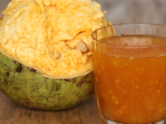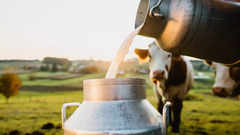01/5Importance of vitamin B1 for overall health

A diet rich in nutrients can be helpful in keeping you safe from many types of serious diseases. This is why, health experts recommend to consume a diet rich in green leafy vegetables, greens and seasonal fruits daily. Generally, when it comes to nutrition, the needs of protein along with Vitamin C and D are discussed a lot, but do you know that Vitamin B is also as important for our body as these nutrients? If health experts are to be believed, Vitamin B-1 plays an important role in keeping nerves, muscles and heart healthy. Also known as thiamine, it is essential for the metabolism of glucose in our body and to ease nerve and muscle functions. Its deficiency in the body can increase many serious health problems such as memory loss.
(Images courtesy: Canva)
02/5What can Vitamin B1 deficiency do?


Vitamin B1 or thiamine is a water-soluble vitamin that helps the body use carbohydrates as energy. It’s deficiency commonly causes Beriberi, a condition that increases the risk of peripheral nerve-related disorders. Apart from this, one can also encounter weight loss and anorexia due to its deficiency. In severe cases, confusion and short-term memory problems may also occur. Here are a few foods that are rich in Vitamin B1 and must be included in daily diet.
03/5Sunflower Seeds


Sunflower seeds contain adequate amount of Vitamin B1. In just 100 gms of sunflower seeds, one can get 0.106 mg vitamin B1. Sunflower seeds also contain many other essential nutrients including vitamins B2, B3, B6, C, E and K. They are beneficial for you in reducing the risk of many serious diseases. The needs of Vitamin B-1 can be met by including it in the diet.
04/5Green Peas


Just 100 grams of green peas contain 0.282 mg of vitamin B1. Apart from this, green peas also provide essential minerals calcium, iron, magnesium, phosphorus, potassium, sodium and selenium. If health experts are to be believed then one can overcome the deficiency of thiamine just by including green peas in the diet.
05/5Vitamin B1 rich foods


Not just these two, but thiamine is found naturally in meat, fish and whole grains. For this, you can also make fish, beans, pulses and curd a part of your diet. The recommended daily intake of vitamin B1 is 1.2 milligrams (mg) for adults aged 19 and older and 1.1 mg for women. Its requirement increases to 1.4 mg during pregnancy and breastfeeding.


































































closecomments
SIGN IN WITH
GoogleEmail